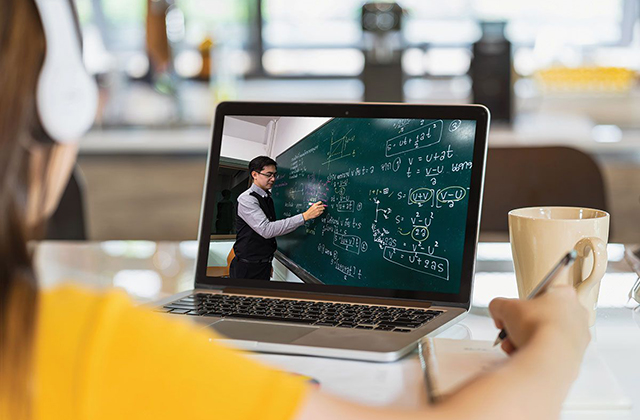Many countries have pushed for higher standards in quality early childhood teacher courses Sydney and identify this among the most important things for young children. Social distancing throughout COVID-19 has actually seen an extreme upheaval to the means we function and also socialise.
Yet what are the ramifications for young children? Numerous kids have been rooted out from their areas of education and learning and treatment, and may struggle to recognize why their regimen has actually been interrupted.
If you’re a parent, specifically in Victoria, you might be asking yourself whether this duration– a considerable quantity of time about the life of a young child– could impact your kid’s social advancement.
The good news is, with much less of the day-to-day rush, several kids have most likely taken advantage of extra socialisation at home with their families.
Checking out an academic lens
We can explore the means COVID-19 might affect youngsters’s social growth by considering 3 concepts in psychology.
- Supporting the specific youngster (accessory concept).
It is necessary for children to develop solid and also safe and secure “add-ons” with moms and dads and caregivers. These emotional and also physical bonds support children’s social advancement.
Psycho therapists have revealed very young children who create solid and safe and secure add-ons end up being a lot more independent, have a lot more effective social relationships, carry out far better at school, as well as experience less stress and anxiety compared to youngsters that didn’t have solid and also protected attachments.
Where the extra time children have actually spent with parents and caretakers throughout COVID-19 has been in an encouraging atmosphere, this may aid the development of these accessories.
- Sustaining the youngster in the family (family members systems theory).
Beyond parents and caretakers, it’s important for kids to establish secure add-ons within the entire family.
For young children, study shows these links with family members can cause boosted social growth, while promoting the kid’s ability to develop their own identity as part of a family.
Kids may have invested even more time with siblings and also various other member of the family during lockdown, possibly establishing much deeper links with them.
- Sustaining the youngster in the area (sociocultural concept).
Sociocultural concept considers social communication to underpin the methods youngsters discover, enabling them to make meaning from the world around them.
While finding out can and does take place between children as well as grownups, there’s lots of research showing all kids gain from socialising with peers of the same age.
Proof likewise indicates youngsters learn to respond to social circumstances in social atmospheres. This could be in early discovering setups, on the play ground, or with their families.
COVID-19 has actually stopped several interactions youngsters would routinely have in very early knowing as well as social contexts. However at the same time, it’s developed opportunities for other meaningful interactions such as at home with household.
Daily life with household, or socially distanced communications within the area, still give fantastic possibilities for social growth.
We can’t understand without a doubt what toll this pandemic will tackle kids’s social advancement.
However it is very important to remember kids are always discovering wherever they may be, as well as whoever they might be with. So try to concentrate on the benefits you have actually acquired spending time with your child at home.
It will not be the same for everybody.
COVID-19 has actually brought bumpy rides for many Australian family members. We understand included monetary pressures can negatively affect domesticity, and also might be compounded throughout lockdown by a lack of external support.
The Australian Early Advancement Demographics continually identifies reduced socioeconomic condition as one of the threat elements for poorer “social capability”– a kid’s capacity to quadrate and relate to others.
This does not suggest all youngsters in households experiencing socioeconomic hardship during COVID-19 will necessarily face difficulties in their social growth. It’s more complex that that. Nevertheless, some might.
Various other danger elements for social competence may have also been enhanced throughout the pandemic. These consist of household problem, stress and anxiety or ailment (of the kid or the parent), and trauma, such as exposure to demanding events, sorrow, or loss.
Children who already stay in vulnerable scenarios might have become a lot more susceptible during this time around.
Getting back to ‘regular’.
Along with danger factors, a range of safety elements might decrease the effects of hardship on a youngster.
We should think about supplying young kids with added assistance, helping them control their emotions, cultivating cozy connections, promoting resilience as well as motivating trouble fixing, and also assisting in social contact within the COVID-19 social distancing norms, such as video clip conversations.
As children begin the change back to very early youth education and learning as well as care, some “clinginess” is natural.
Having a distressed kid at drop-off time can be confronting. But rely on their ability to regulate their feelings when you leave, and also their ability to rediscover relationships with their teachers, carers and also friends. They must quickly readjust.
To support smooth shifts back into early childhood years education and also care, talk positively with your child concerning individuals they’re going to see, such as instructors and their pals, and urge them to ask any type of questions they might have.
If you’re stressed over just how the lockdown has actually impacted your kid, you can always talk with your youngster’s educator, the centre supervisor, or your General Practitioner about connecting with services developed to sustain you and your child. Go here for any educational tips about ECE.
